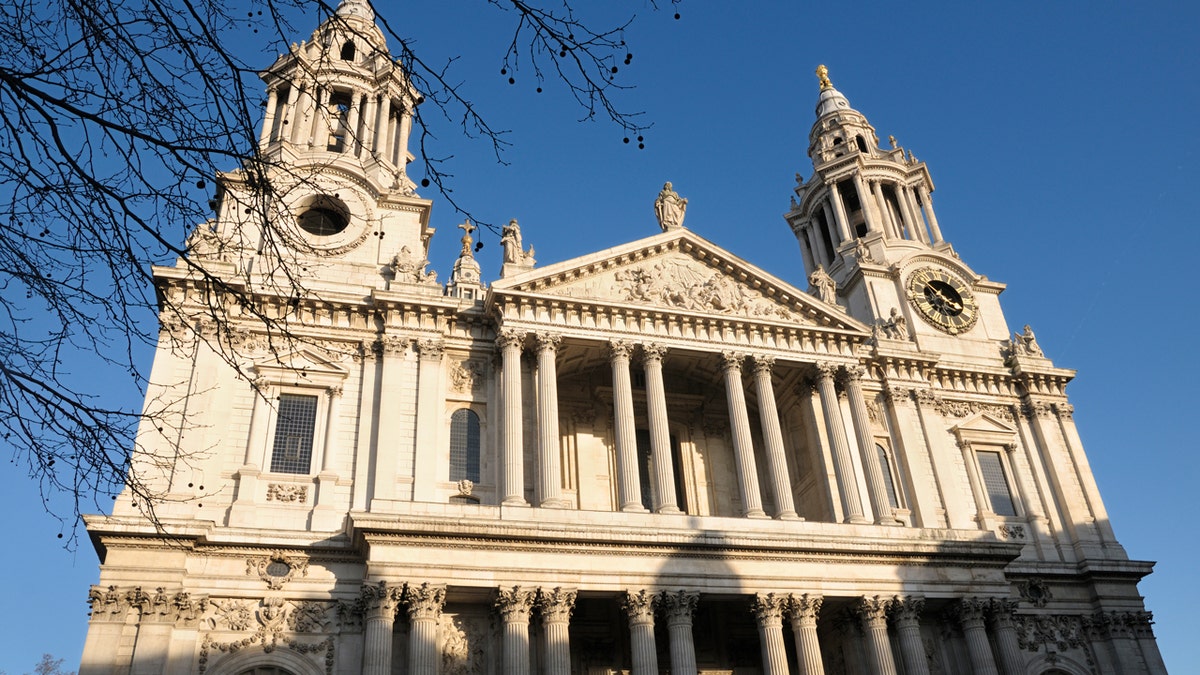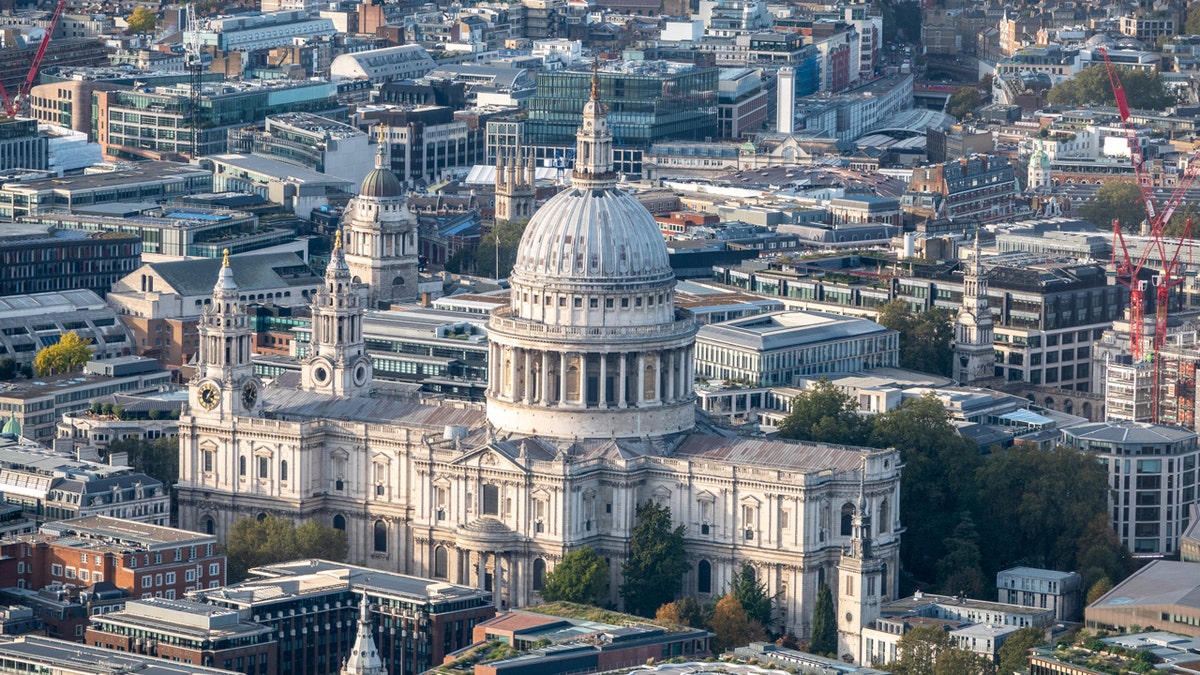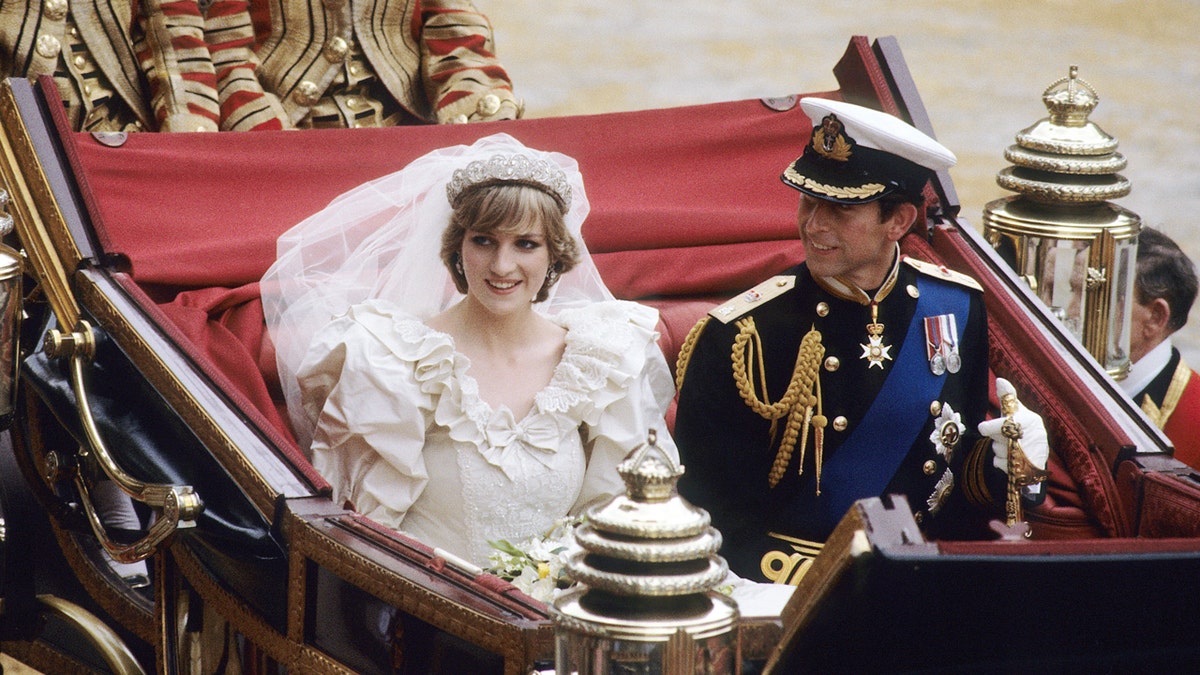
Military horses run loose in London
Multiple horses belonging to the Household Cavalry, part of the British Army, ran loose through the streets of London, injuring at least one person. (Reuters)
St. Paul’s Cathedral in London has been the site of many historic moments, including the wedding of Prince Charles and the late Princess Diana Spencer in July 1981.
The cathedral’s safety has been a concern many times throughout its history, especially after it was damaged in bomb raids during World War II. St. Paul’s Cathedral remarkably stood among the destruction.
There were several bomb raids in and around the cathedral during WWII.
St. Paul’s Cathedral has been the venue for many royal events, like the wedding of the late Princess Diana and Prince Charles, but it has also withstood several fires and bombings since its early days. (Anwar Hussein/WireImage I Grant Smith/View Pictures/Universal Images Group via Getty Images)
CHURCH IN SYRIA WIDELY CONSIDERED OLDEST IN THE WORLD; DURA-EUROPOS IS A HISTORICAL LANDMARK
During “The Blitz,” a German bombing campaign on British cities, London was bombed 57 nights in a row, according to the St. Paul’s Cathedral website. During this time, there were over a million buildings partially damaged or destroyed.
Many bombings happened around or in the cathedral, including on Dec. 29, 1940.
On that night, the Daily Mail’s chief photographer, Herbert Mason, was on the roof of the newspaper’s building, looking around at the destruction below and smoke filling the air.
Through the smoke, he saw St. Paul’s Cathedral still standing tall among all the surrounding destruction as a shining light in the city.

St Paul’s Cathedral withstood several bombings during World War II. (Chris Harris/UCG/Universal Images Group via Getty Images)
CHURCH OF ENGLAND APPEARS TO STOP USING THE WORD ‘CHURCH’ TO SOUND MORE ‘RELEVANT’: STUDY
“Suddenly, the shining cross, dome and towers stood out like a symbol in the inferno. The scene was unbelievable. In that moment or two, I released my shutter,” Mason said of the moment, according to the cathedral’s website.
The photo, “St. Paul Survives,” is still famous today.
On that night, 28 small explosive devices fell on and around the cathedral, hitting the dome and destroying the Chapter House located nearby, according to the St. Paul’s Cathedral website.
Two months before, a 500-pound bomb went off in the Apse and Quaire, according to the source, and the cathedral suffered another direct hit in April 1941.

St. Paul’s Cathedral includes a beautiful dome. (Matt Cardy/Getty Images)
8 TOP-TIER EXPERIENCES TO ADD TO YOUR LONDON BUCKET LIST
In September 1940, another bomb landed in the south-west tower but didn’t explode and was carefully removed for safe detonation.
There are several places throughout the cathedral where bomb damage remains to this day, according to the website for St. Paul’s Cathedral.
Many years later, the cathedral was the setting for Prince Charles and Princess Diana’s wedding.
St. Paul’s Cathedral was a unique choice for the wedding ceremony because most in the royal family chose Westminster Abbey as their place to be wed.

Having their ceremony at St. Paul’s Cathedral allowed for more public viewing of Princess Diana and Prince Charles on their wedding day. (Anwar Hussein/WireImage)
CLICK HERE TO GET THE FOX NEWS APP
Prince Charles and Princess Diana’s July 1981 wedding was the first for an heir to the throne to be held at St. Paul’s Cathedral in 480 years, according to the cathedral’s website.
St. Paul’s Cathedral was chosen as the wedding venue for its large size and the long route to the cathedral, Clarance House and Buckingham Palace, allowing more opportunities for public viewing.
There were 3,500 in attendance at the royal wedding, according to the cathedral’s website, with another 350 million watching from home.
Today, St. Paul’s Cathedral continues to be a holy place for worship and the setting of many royal events. It’s a staple of the city, with its famous unmistakable dome among London’s buildings. It’s also one of London’s popular tourist attractions, with millions visiting each year.





